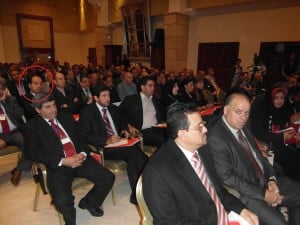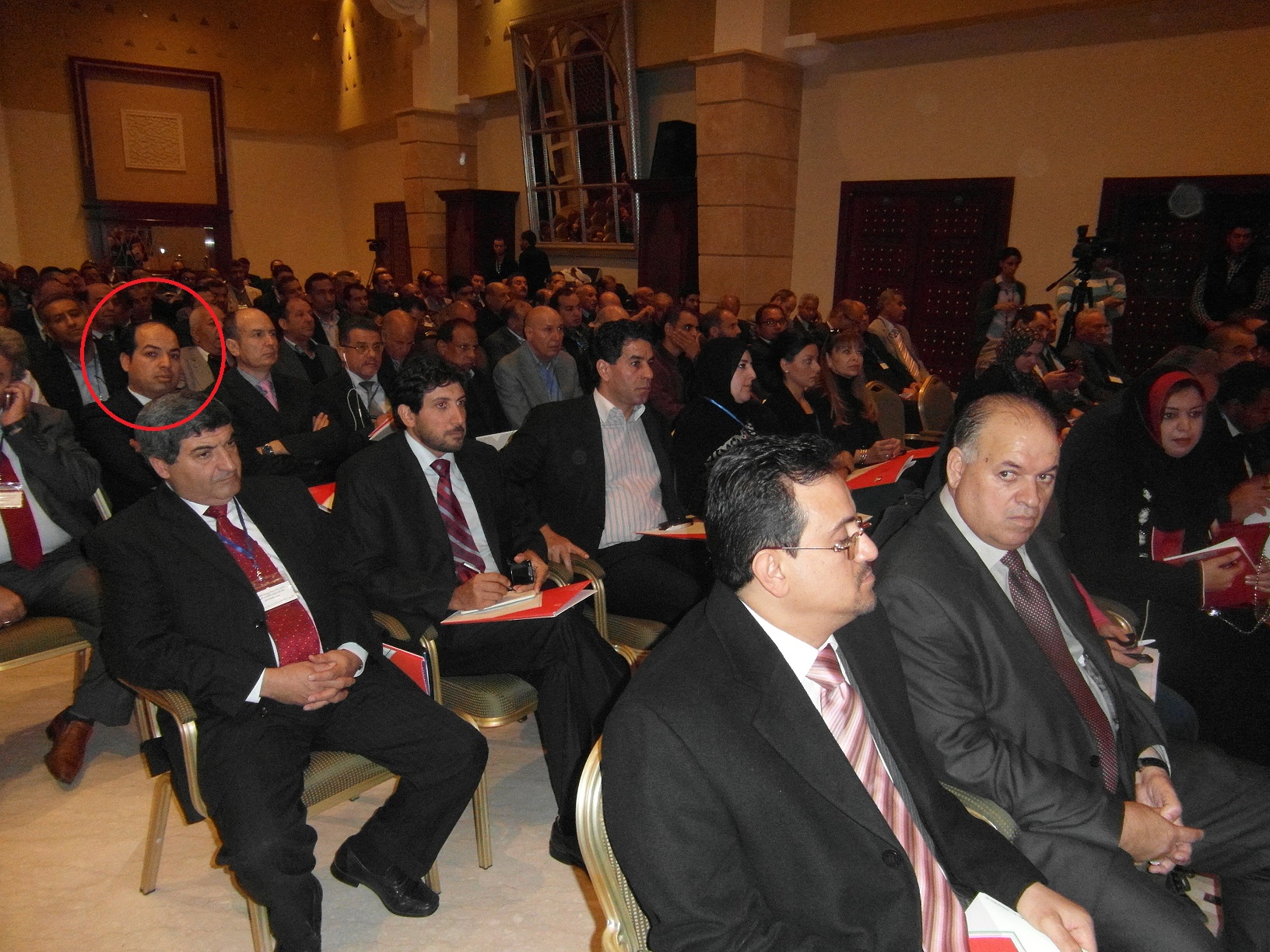By Sami Zaptia.

Tripoli, 4 May 2014:
Only an hour after being appointed – and not without controversy – as Libya’s latest Prime . . .[restrict]Minister, Libyans were already looking forward to a brief term in office for a Prime Minister that might break the mold from his predecessors.
Most of this early optimism is based as much on the optimism and expectations that generally come with a change of leadership as anything else.
For a start, the new Prime Minister is younger than his predecessors, which is giving the overwhelmingly young population of Libya some hope . They hope that there will not be the generation gap that existed with previous Prime Ministers: Jibril, Al-Kib, Zeidan and Thenni.
Maetig is also believed to have spent most of his life in Libya. It is hoped that he is tuned-into the psyche of the Libyan public with all its Qaddafi era, post revolution and idiosyncratic ways.
More importantly, he is not believed to have a second nationality, or a “double shaffra” (double SIM-card) as they say in Libya. Many Libyans, rightly or wrongly, have developed a complex from the Diaspora parachuted in to try to save the country – but seen to have miserably failed.
The newly elected Prime Minister is also well off, and this is again popularly perceived as a good characteristic as it is felt that he will not be coming to the job for its high salary.
Moreover, as a successful businessman, owning several companies as well as the Tobacts hotel in Omar Mukhtar street, Tripoli, the business community is pining high (and probably unrealistic) hopes on him mending the business environment.
Politically and militarily, Maetig should also be strong. In a country where post revolution the gun of a militia ruled more than the decision of a Prime Minister or the vote of a GNC member, being from the city of Misrata should help.
The theory is that the militias should not be able to push him around, They know quite clearly that his hometown of Misrata will not sit around while he is kidnapped, coerced, intimidated or his office is siege. He has backing, and his militia enemies know it.
With regards to his position via the three main political blocs: the Justice and Construction, the National Forces Alliance and the Wafa bloc, it is said that he stands at an equal distance from them all.
This remains to be seen. There must have been some political horse-trading for Maetig to convince 120+ GNC members to eventually vote for him. Promises may have been made, and they would rightly expect payback, usually in the form of appointments to prominent jobs.
Maetig is also seen to have an advantage of not being from the opposition to the Qaddafi regime. He did not belong to the Libyan Fighting Group nor was he in Afghanistan fighting, nor was he imprisoned in Guantanamo Bay. He also does not walk around in army fatigue pretending he was a militia fighter during the 2011 revolution.
To this end, Maetig does not feel that Libya and Libyans owe him a debt of gratitude. He does not walk around with a chip on his shoulder, carrying decades of complexes and grudges formed as a result of years in opposition to Qaddafi. He does not carry the scares of a victim of Qaddafi. He is also not seen to be hungry for power as a result of decades of banishment outside his homeland.
Ultimately, Maetig was not associated with the old and corrupt Qaddafi regime. He did not hold any positions during that era nor is he reputed to have engaged in any corruption.
Of course, all this is supposition and speculation about a businessman – before he becomes one of the most powerful men in Libya. Only time will tell how he reacts to and deals with ultimate executive power.
Only time will tell if the businessman can use his business skills to deal with political pressures and demands. Only time will tell how he deals with the various militias, the tribal pressures, including those of his own hometown of Misrata, Zintan, Sug il Juma – and how he deals with the insecurity and the terrorist militias threatening to rip Libya apart.
It is a big switch from running a number of companies to running a country. Libyans are looking for a savior from this doom and gloom. They are pinning much hope on their latest post revolution Prime Minister, who realistically has no more than 6 months to make his mark before the constitution is drafted and elections are held for a full term parliament.
Time is short and institutional capabilities are limited for Mr Maetig. Libyans are looking for a strong effective decision-maker not afraid to take hard decisions and tell them the truth.
Congress have granted him two weeks to come up with a new government. This is where Mr Maetig’s political acumen will be tested to its full. It will be recalled that Prime Minister elect Mustafa Abushagur failed twice to please the GNC. These will probably be the most difficult two weeks of Maetig’s life. He needs all the luck in the world. [/restrict]







